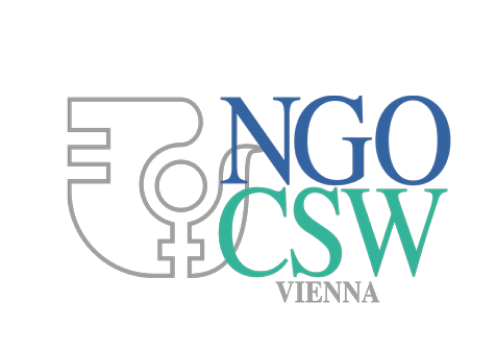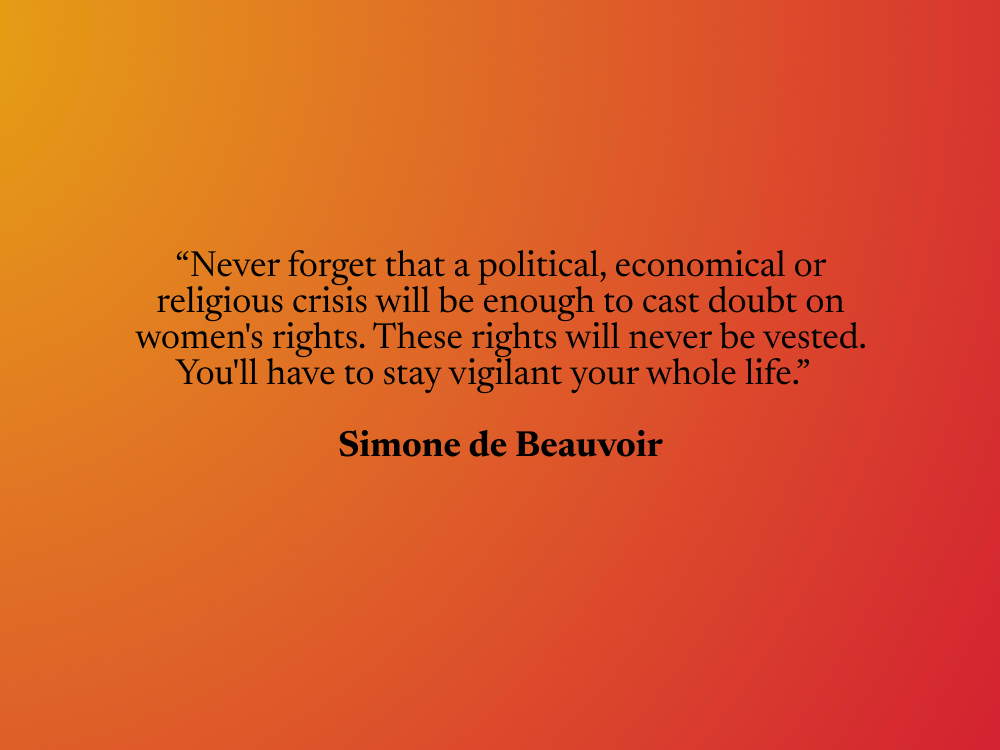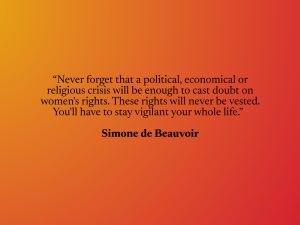Women’s Economic Empowerment in the Changing World of Work
The International Association of Democratic Lawyers and the undersigned non-governmental organizations in consultative status with ECOSOC and member organisations of the NGO Committee on the Status of Women Vienna present the following statement to the members and observers of the 61st UN Commission on the Status of Women:
Economic empowerment of women is essential to enhance gender equality and secure women’s equal status and participation in every professional, social and political field. Access to resources is as important for achieving independent lives as education, ability or place of origin, and the contribution of women as equal partners in modern economies is a prerequisite for sustainable development.
– Considering that implementation of the SDGs would further enhance gender equality and empowerment of women in the economic sphere, thereby benefitting individuals, families, and communities and contributing to stronger, more cohesive societies;
– Recognizing that legal status does not always reflect the real status in society, and that legal discrimination continues to exist, e.g. laws governing inheritance or ownership of land and property;
– Underlining that education is critical for achieving equality;
– Stressing that gender-specific health care should cover the entire lifespan of girls and women and not be limited to sexual and reproductive health, and that health in the workplace is important in economic participation in industrial as well as emerging economies;
– Demanding the full implementation of ILO Conventions that commit to ensure decent work and gender equality in the workplace;
– Reiterating that the elimination of all forms of violence against women in both public and private spheres is critical in the fight against inequality, as violence is often used for domination and intimidation;
– Stressing that, as funding activities to empower women is necessary to create a level playing field, this funding cannot depend on voluntary donations, but must be included in public spending;
– Calling for the adoption of gender budgeting as a tool to analyse public spending, budgets and final accounts to ensure a fair and transparent distribution of public funds by all member states and international organizations;
To ensure the full economic empowerment of women by 2030, the undersigned member organisations of the NGO Committee on the Status of Women Vienna submit recommendations for consideration by the members and observers of CSW61:
a) Equalaccesstoaffordableeducation(primary,secondaryandtertiary)isa prerequisite to women’s economic equality. Education should not focus on gender, but on abilities and talents, and train girls and women to lead and to work in teams. Science and mathematics as well as IT training should be emphasized;
b) Womenandmenmustbepaidequallyforworkofequalvalue,haveequalaccessto training and promotion, equal opportunities to choose working hours, holidays and fringe benefits, and enjoy the rights to freedom of association and collective bargaining, and childcare and child services are essential;
c) Programmesareneededtoenhanceoccupationalhealthandsafetyforwomen, taking differing needs in different jobs into consideration;
d) Legislationshouldbedevelopedandenforcedtosupportgenderequalityand eliminate obstacles in the workplace and in societies, including measures such as quotas on Boards and more equal sharing of family responsibilities, for example regarding care-taking and parental leave;
e) Creationofalevelplayingfieldincludestheeliminationofgenderstereotypesand religious and traditional culture-based roles for women;
f) Elimination of all forms of violence against women includes prevention of new forms such as cyber-bullying and cyber-harassing, as well as structural violence and abuse;
g) Implementationofsustainabledevelopmentmeasuresandfairtradepracticeswill serve to strengthen the global economy and avoid austerity measures;
h) Developmentassistanceprogrammesandcountries’budgetsaretobeanalysed, monitored and evaluated considering the female economic dimension to eliminate negative impacts on women;
i) Training, mentoring and financial support as well as training in the use of banking systems are necessary to promote women entrepreneurs;
j) Investment in local, regional and national infrastructure should provide women with improved, safe access to public transportation and market facilities;
k) Theneedsofwomanrefugees,migrantworkers,ruralandindigenouswomenand women with special needs must be considered in employment policies and provision of social and health services;
l) Research into alternative economic systems should be undertaken, including development and application of indicators to measure and evaluate the contribution of unpaid work;
m) The essential work of women’s civil society organisations must be recognised, valued and supported.
Signed by the following members of the NGO Committee on the Status of Women Vienna
African Action on AIDS
Associated Country Women of the World
European Union of Women
FAWCO
Graduate Women International International Alliance of Women International Council of Jewish Women International Council of Women International Inner Wheel
International Federation of Business and Professional Women International Federation for Home Economics
International Federation of Social Workers
Pax Romana
Servas International
Socialist International Women
Soroptimist International
Verein zur Förderung der Völkerverständigung (VFV) Women International Zionist Organization
Zonta International






